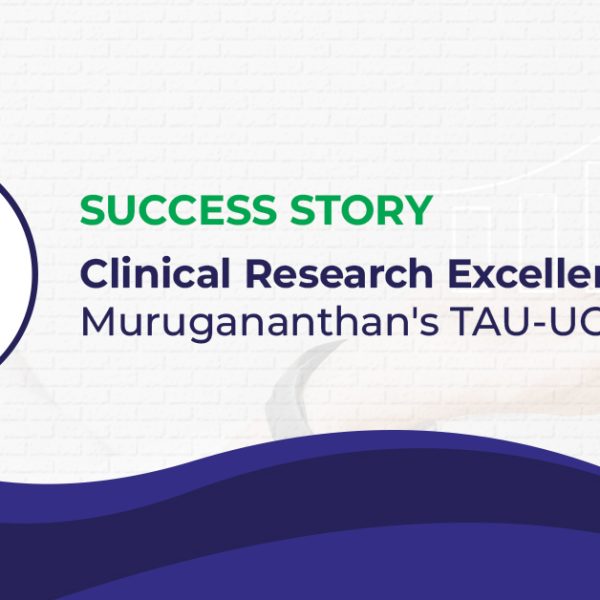Blog Summary
Unlock the door to a promising future in healthcare with our comprehensive guide on pursuing a PhD in Clinical Research. From understanding program options to overcoming challenges, we illuminate the path from awareness to action. Dive into the world of online and part-time programs and discover the keys to balancing work, life, and academic commitments. Embark on your journey with confidence as we equip you with essential strategies for success in advanced clinical research studies.
Introduction
Clinical research is pivotal in advancing medical knowledge, improving patient care, and shaping healthcare policies. As the cornerstone of evidence-based medicine, it drives innovation and fosters critical breakthroughs in healthcare. Pursuing a PhD in clinical research signifies a commitment to academic excellence and empowers individuals to become leaders in the field. This article aims to provide a comprehensive overview of the journey from awareness to action in pursuing a PhD in clinical research.
Whether you’re considering a full-time commitment or exploring part-time or online options, understanding the landscape of doctoral programs is essential. By examining the benefits of distance learning and the best online clinical research programs, we aim to guide aspiring researchers towards making informed decisions that complement their career and education goals.
Navigating the Journey to a PhD in Clinical Research
A PhD in Clinical Research is an advanced academic degree that equips individuals with the skills and knowledge to conduct rigorous research in healthcare settings. It involves in-depth study and investigation into various aspects of clinical trials, patient care, and medical interventions.

Importance and Scope: Advanced degrees in clinical research, such as a PhD, are crucial in advancing medical knowledge and improving patient outcomes. They empower professionals to contribute to developing new treatments, interventions, and healthcare policies through evidence-based research.
Exploring Various Modes of Pursuing a PhD in Clinical Research
Traditional Full-time Programs
Traditional full-time PhD programs in clinical research typically require students to dedicate themselves to full-time study and research.
Part-time Online Programs
Part-time online PhD programs offer flexibility for working professionals, allowing them to balance their academic pursuits with other commitments while studying remotely. These programs provide accessibility and convenience without compromising on the quality of education.
Part-time PhD in clinical research offers a flexible option for working professionals, enabling them to pursue advanced education while managing their career responsibilities and other commitments.
Decision-Making Process
Navigating the decision-making process when pursuing a PhD in Clinical Research requires careful consideration of various factors.
Factors to Consider Before Pursuing a PhD in Clinical Research
Academic Readiness and Requirements: Assess your academic background and ensure you meet the requirements for admission into a PhD program.
Career Goals and Aspirations: Reflect on your career objectives and how a PhD in Clinical Research aligns with your professional aspirations.
Personal Commitments and Time Management: Evaluate your commitments, including work and family responsibilities, and determine if you can dedicate the time needed for doctoral studies.
Evaluating Program Options: What to Look for in a PhD Program
Accreditation and Reputation: Research potential programs’ accreditation status and reputation to ensure they meet quality standards.
Faculty Expertise and Research Opportunities: Explore the faculty member’s expertise and the research opportunities in the program to find a good fit for your interests.
Curriculum Structure and Flexibility: Consider the curriculum structure and flexibility of the program to ensure it accommodates your learning preferences and schedule.
Support Services for Students: Investigate the support services offered, such as academic advising, mentorship, and career development resources.
Advantages of Pursuing an Online PhD in Clinical Research
In today’s fast-paced world, many working professionals aspire to advance their careers through higher education but struggle to find the time to commit to traditional on-campus programs. Pursuing an online PhD in clinical research offers several distinct advantages, catering to the needs of busy professionals while providing a comprehensive education in the field.
Flexibility for Working Professionals
- Online PhD programs in clinical research offer unparalleled flexibility, enabling students to balance their academic goals and professional and personal responsibilities.
- With asynchronous learning formats, students can access course materials and lectures conveniently, eliminating the need to adhere to rigid class schedules.
Access to Diverse Resources and Experts
- Although conducted virtually, online PhD programs provide access to many resources, including virtual libraries, research databases, and academic journals.
- Students benefit from interactions with faculty members and fellow students from diverse backgrounds, fostering a rich learning experience and encouraging collaboration on research projects.
Networking Opportunities in Virtual Settings
- Virtual classrooms and discussion forums create avenues for networking and collaboration, facilitating meaningful connections with peers and industry professionals.
- Online PhD programs often organize virtual seminars, conferences, and networking events, allowing students to engage with leaders and experts in clinical research.
With access to diverse resources, expert faculty, and networking opportunities in virtual settings, online programs provide a comprehensive and convenient path to achieving academic and professional success in the field.
Addressing Challenges in Clinical Research Studies
Balancing Work, Life, and Academic Commitments
One of the primary challenges individuals face pursuing a PhD in Clinical Research is finding a balance between their professional, personal, and academic responsibilities. Many students opt for part-time or online PhD programs to accommodate their work and life commitments while advancing their education. Time management skills, prioritization, and effective scheduling are essential in successfully navigating this balance.

Financial Considerations and Funding Options
Financial concerns can be significant barriers for prospective PhD students. However, various funding options are available, including scholarships, grants, and tuition assistance programs. Additionally, part-time and online PhD programs often allow students to continue working while studying, alleviating some financial strain.
Strategies for Maintaining Motivation and Focus
Maintaining motivation and focus throughout a PhD program can be challenging, especially when balancing multiple commitments. Setting clear goals, breaking down tasks into manageable chunks, seeking support from peers and mentors, and practising self-care are essential strategies for staying motivated and focused on the path to earning a PhD in Clinical Research.
Conclusion
Embracing the journey towards a PhD in Clinical Research opens doors to limitless possibilities and opportunities for personal and professional growth. Despite the challenges, each hurdle is a stepping stone towards success, fueled by passion and dedication. Whether through traditional full-time programs or the flexibility of part-time or online options, aspiring researchers are empowered to make a meaningful impact on healthcare innovation and patient care.
With perseverance and a resilient spirit, every obstacle becomes an opportunity for growth, paving the way for a fulfilling and rewarding career in clinical research. Stay focused, stay motivated, and embark on this transformative journey with confidence, knowing that your contributions will shape the future of healthcare for generations to come.













